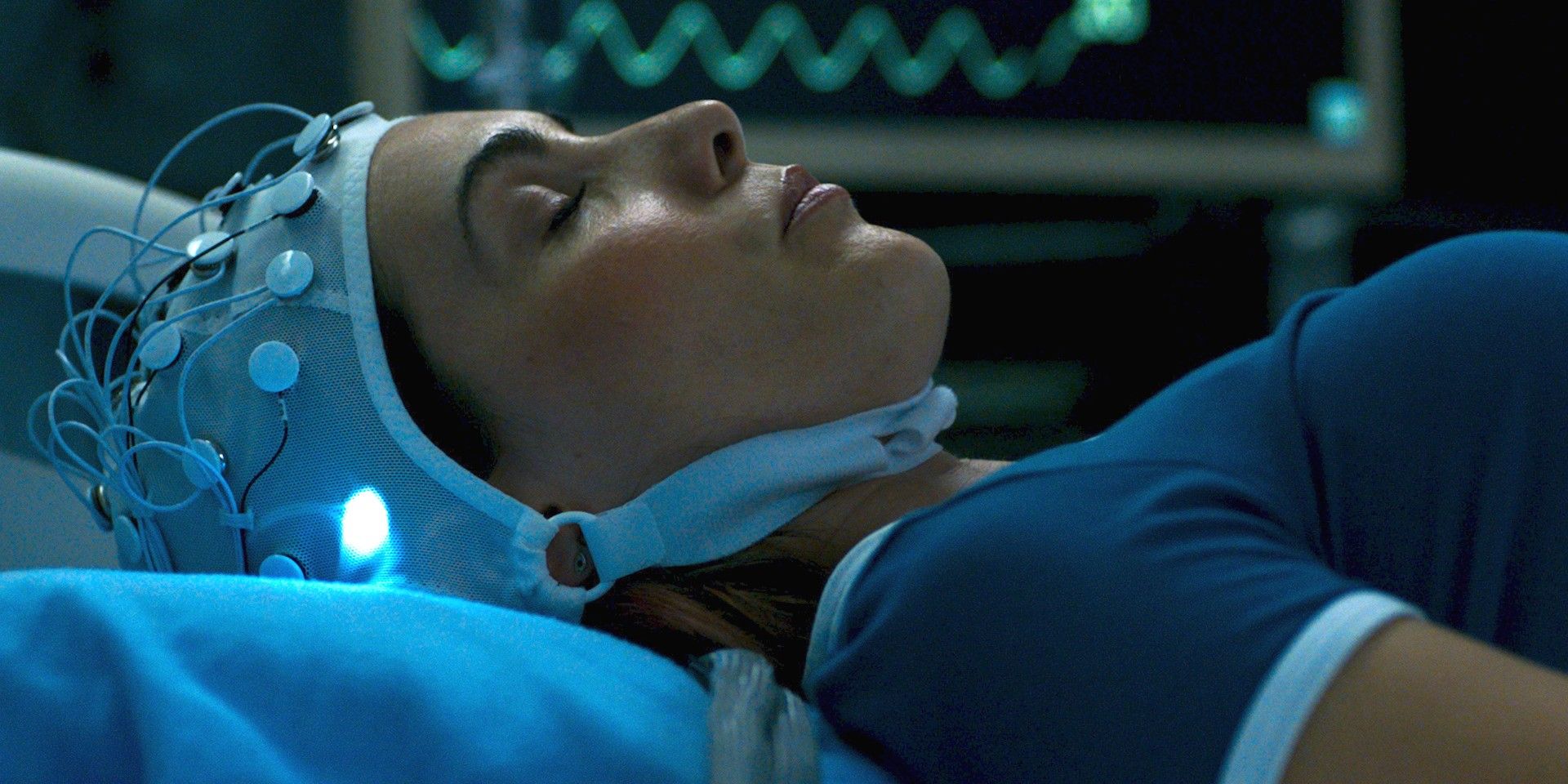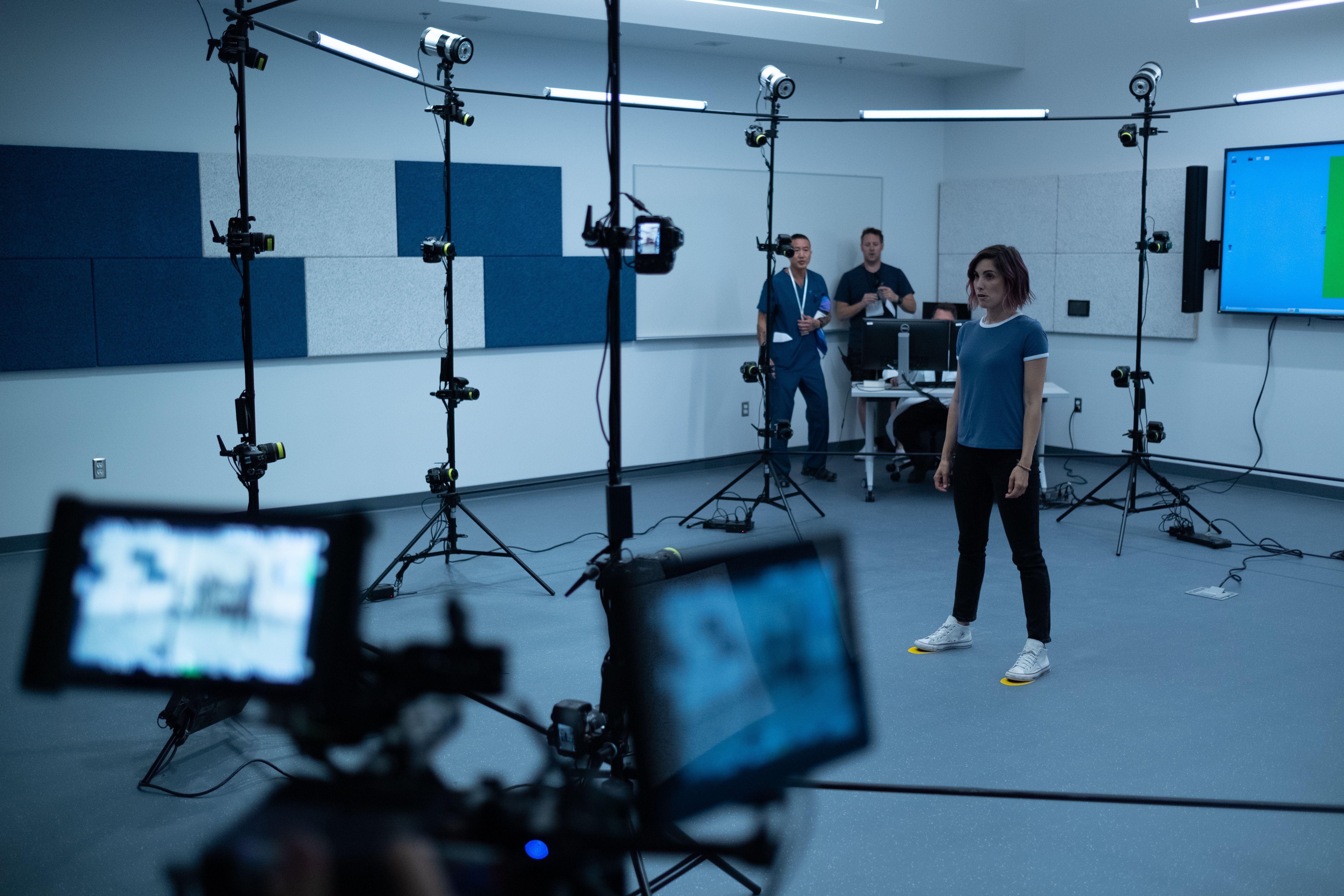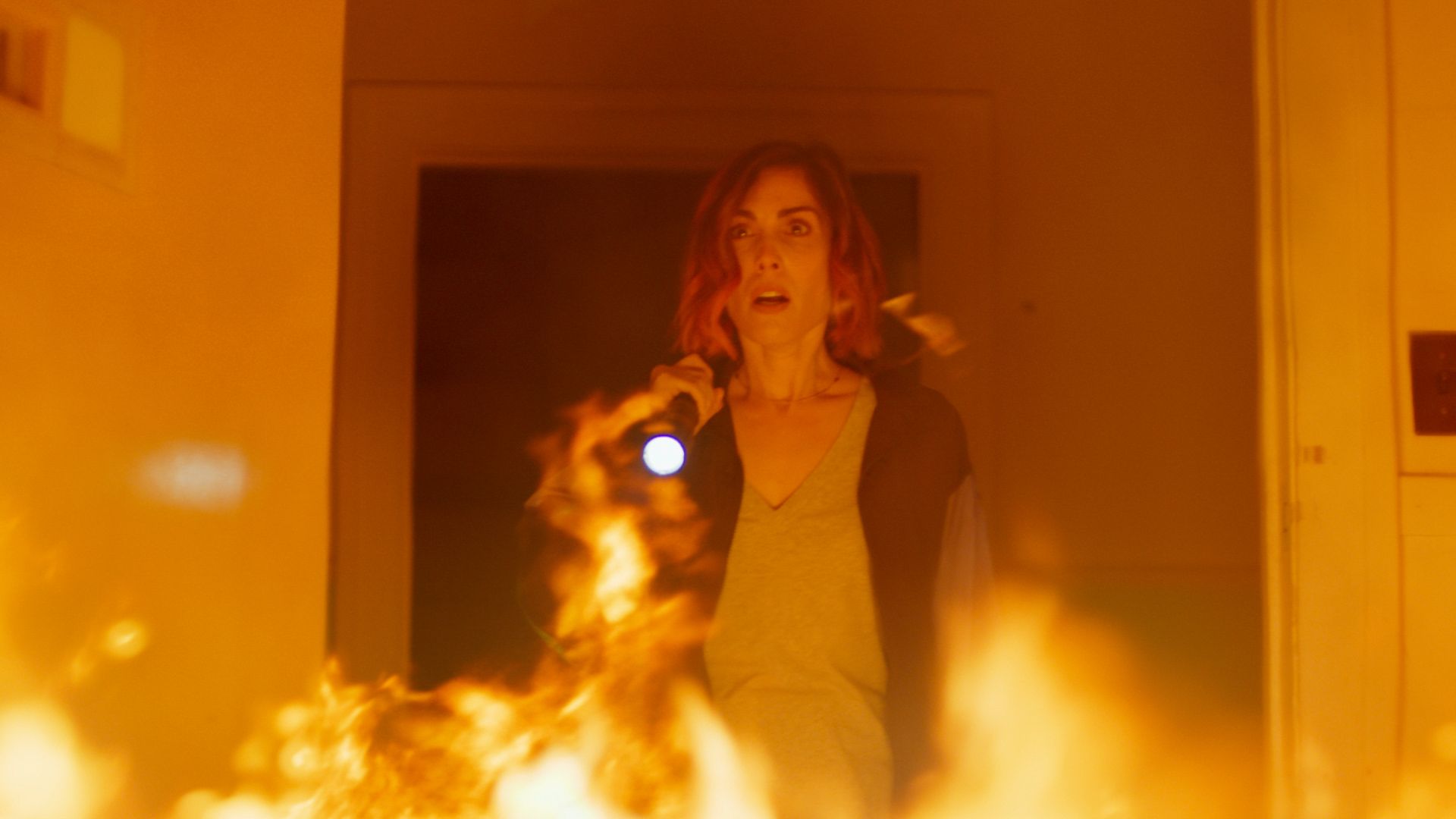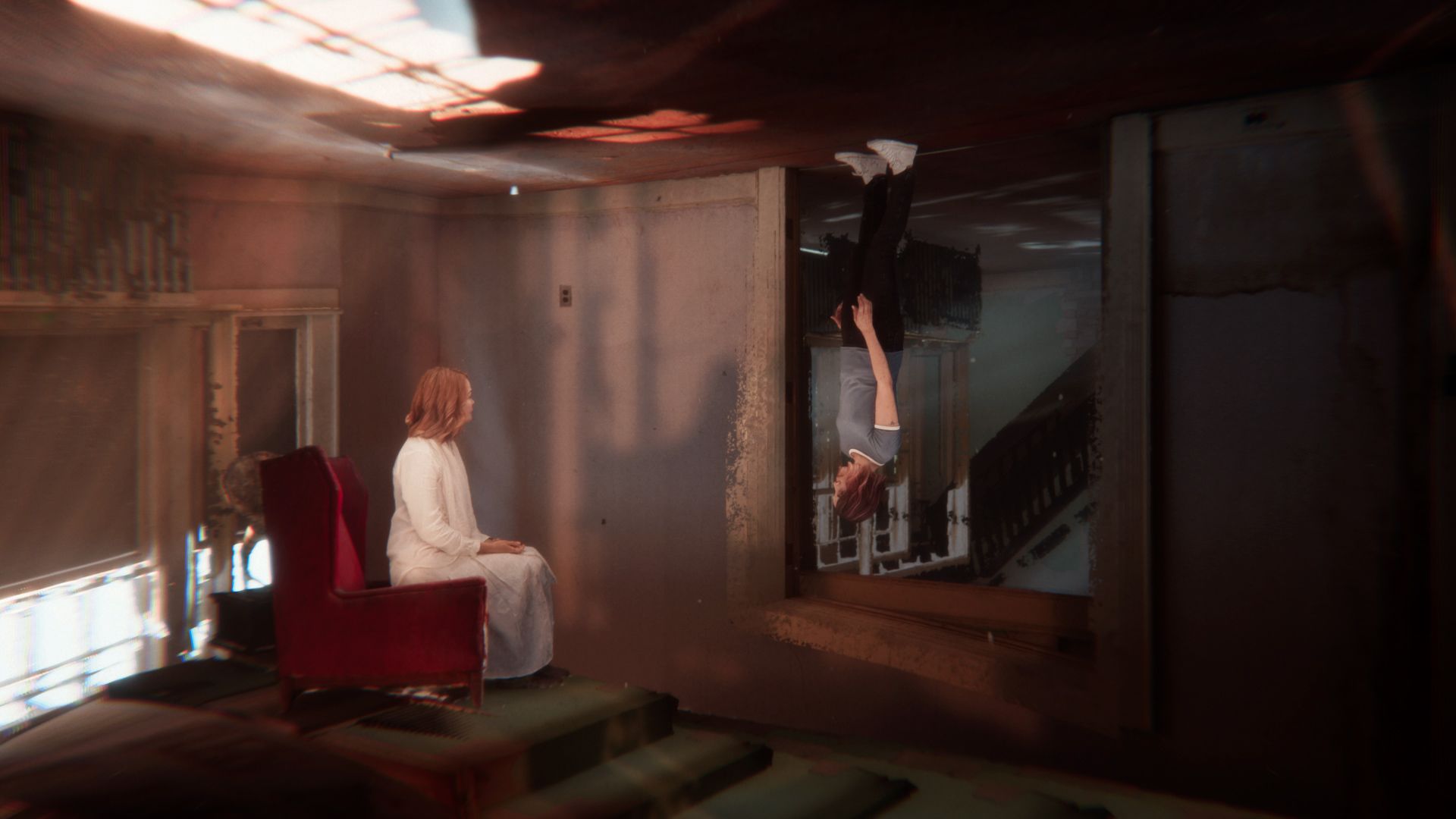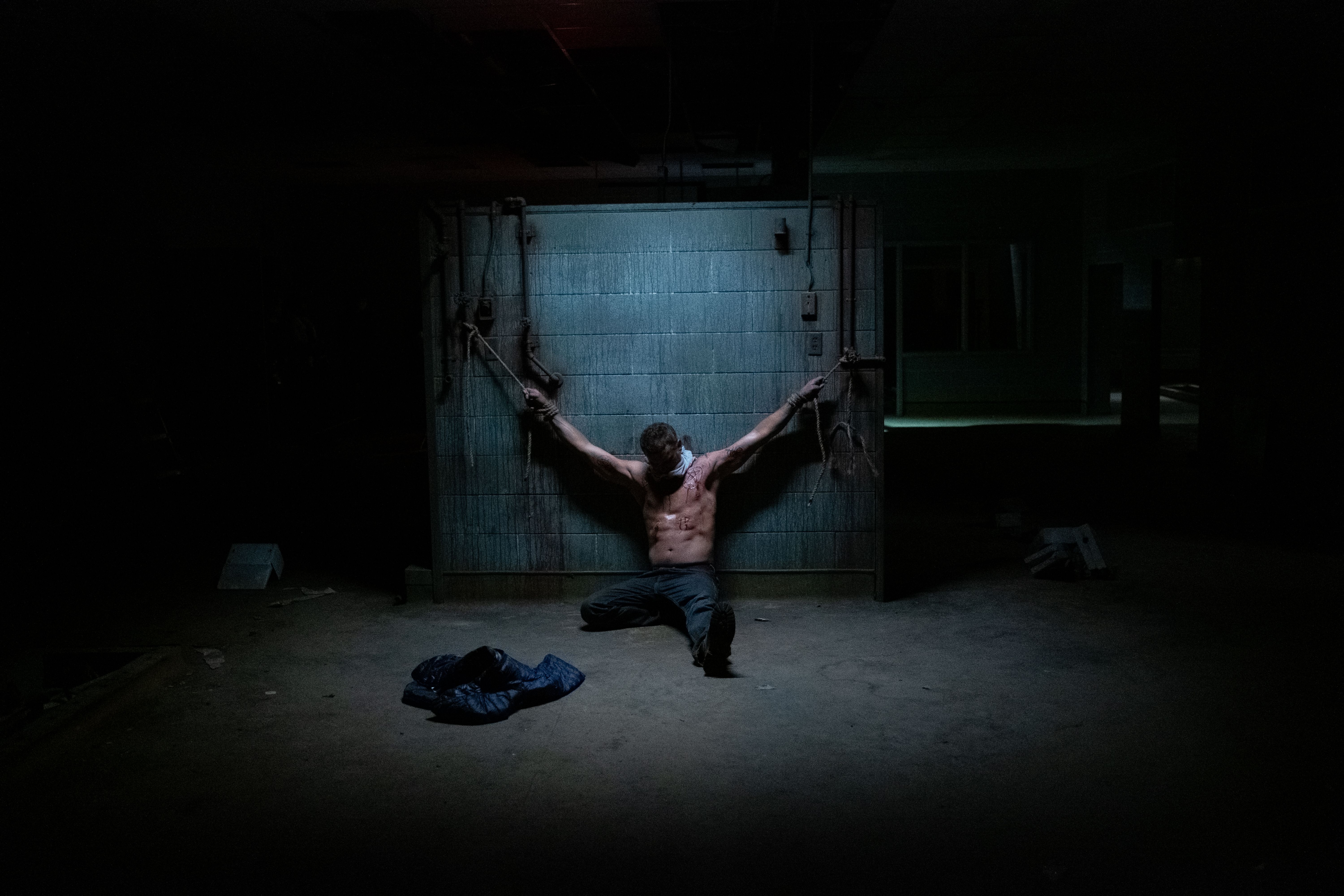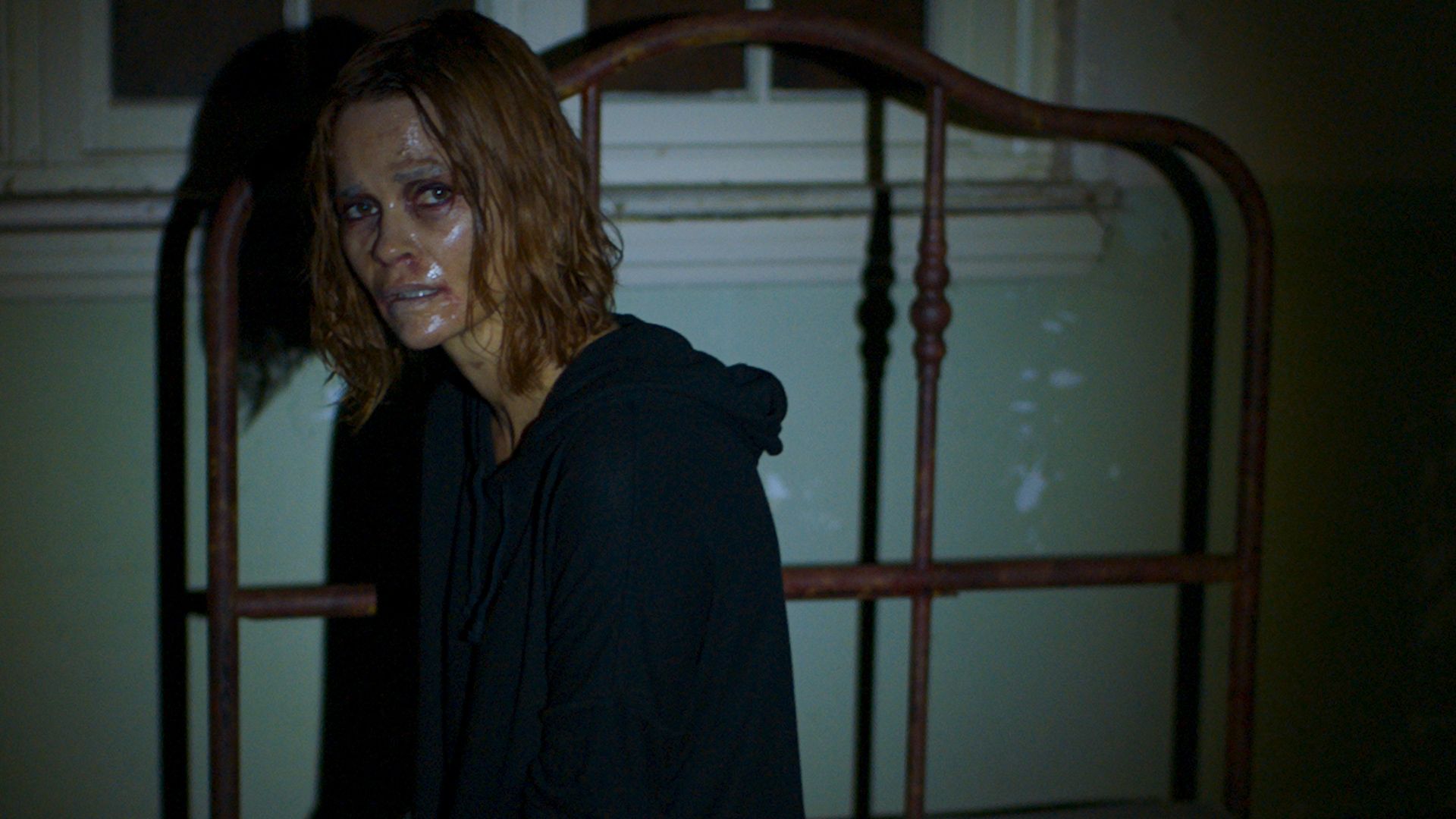While Neill Blomkamp's Chappie didn't receive rave reviews at the time of its release, its inventive use of motion-capture work on screen paved the way for many future science-fiction films to utilize similar special effects. With Demonic, Blomkamp takes an even bigger creative swing by using volumetric capture -- a 3-D filming technique that captures an actor as a 3-D object that can then be placed into any 3-D environment -- to not only tell his thriller tale, but to demonstrate the technology's storytelling potential.
Although Demonic is largely about a woman named Carly (Carly Pope) trying to let go of her painful past history with her sick mother Angela (Nathalie Boltt), it's also an intriguing thought experiment of how vol-cap technology could be used in the future to connect with loved ones who are cognitively hard to reach. In an exclusive interview with CBR, Pope discussed what it was like to act with 260 cameras pointed at her all at once, the moving message behind the film's mother-daughter relationship and the sci-fi thriller's unique premise.
CBR: When I spoke with Neill Blomkamp earlier, we talked about how Demonic uses the most amount of vol-cap work that has ever appeared in a film. Now that you've been through this experience, what's one thing you'd tell a future actor who is looking to step into a similar role with vol-cap?
Carly Pope: Yeah, that's that's a great question and a very, very thoughtful one to consider. I definitely felt like it was such a strange, discordant process. None of it really makes sense. You don't really understand what the technology is or how it's going to look in the finished product. I would say if you were going to do the vol-cap process, and you had the ability to see what the process is first, and then see what the finished product looks like, that might be helpful just as an actor to have a tangible understanding of how it's going to look, what's going to fill in the blanks.
Beyond that, my biggest challenge was having to connect to the emotional content of those sequences, because those sequences in the film are kind of the most vulnerable and the most emotionally charged scenes of the film. And it was, it was really hard for me on a molecular level to connect to my emotional center with all of this technology around me.
One of the things I kept thinking about when I was watching Demonic is that you're going through some of the most traumatic moments for your character and your character's mother while being inside her head. Were you and Boltt separated during that process while you were wearing the technology?
No, so, this is what's so interesting about volumetric capture is that we both were able to be in the ring of cameras together. So we are acting as if we're on a stage together, which we were. And so we were physically in the same space. But sometimes we had another camera in the cage that was capturing our close-up data that was kind of obscuring our sightline to one another, for instance.
So we still were able to act with one another, but we had the technology infringing on that space constantly. We never had to film anything separately, which was incredible. I think that that's maybe the piece of advice that I would give, is, "If you do have a scene partner in that environment, try to rehearse as much as possible. Try to connect to one another as much as possible." So that's not also hanging over you when you have all this other stuff to contend with. Because there were over 260 cameras [laughs] built into an MMA cage of activity with wires all over the place and hard drives and screens and like everything just felt very, very buzzy. Very synthetic and inorganic. So I think the more that you can connect to a human in those moments is the core conceit so that the tech doesn't have to get in the way.
Demonic is a lot of things -- a possession tale, a sci-fi tale, and a story about a strained mother-daughter relationship. Initially, when Carly is asked to use the Therapol technology in the film to connect to her mom, she declines, but she does change her mind. Why do you think she ultimately decides to help her?
I'm lucky to have both my parents in the world. I feel very, very blessed for that. I know a lot of people do not have that privilege. I feel very, very lucky for that. But the concept of, if one of my parents was going to soon be leaving this earth, despite or in spite of having this rift, would you be able to, in the end, let them go? Or do you need some sense of closure? Do you want some sense of closure? I was really compelled by the concept of Carly abandoning her mother, which really was the result of feeling like her mother abandoned her. There was a lot of unresolved stuff.
So to me, that was the big draw of why she would want to go in even if her reasoning says something else. I think the real draw is she's connected to her mother entirely. There's a nice metaphor about trauma being passed down, intergenerational trauma here that's going on. You can take the girl out of the farm, but you can't take the farm out of the girl. It's that kind of feeling here. And I think for that matter, Carly can say she's cut her mom off, she's disconnected. She's done. She doesn't want anything to do with her all she wants. But the reality is, she's still very much connected in a metaphorical sense of having this trauma that is literally being passed down to her.
Yeah, in a way it reminded me of Babadook -- the idea that there's this monster of trauma that's affecting them.
I love that film. And yeah, I love that. I thought it was exactly like that. There's something there that I appreciate. I appreciate and value the concept of the maternal line. There's an inherent vulnerability, which is a nice contrast to the genre and the tropes of the genre.
Speaking about the demons that play out on-screen, without spoiling anything, I was curious how much of the stunt work that you did around that element? And if you did work with a stunt double, what was that process like for you?
Are you referring to the third act or the second act?
A little bit of both, so whatever you can share, go for it!
So I did the second act stuff, which is my favorite sequence ever, like ever. I was riveted reading it and was so excited about that sequence. It was so fun. That was all me because there was really not that much there. There was nothing really risky to be done other than experiencing exactly what was going on in real-time, which was plenty, plenty terrifying.
But, when we get into the third act stuff there, we definitely had a stunt double for certain parts of that. We actually ended up having two stunt doubles, because we had to do a bit of a reshoot. Both Krista [Bell] and Janene Carleton were so extraordinary and helped me so much. That's what I love. I love stunt actors. Stunt performers, to me, are so enriching because you get to see the pure physicality of something, and then you can kind of negotiate that, and mold that into the performance. So I had to do some of it, but they had to do like the good bits. They did the stuff that they did the stuff that counts.
What's one thing that changed from the script for the better during shooting?
Great question. It was an 11th-hour change, which was the third act sequence we're talking about. And that was... I think it was two days before we were going to shoot. And Neill [Blomkamp] said, "I think I have to change that." He told me what it was going to be, and I have a massive panic attack. I knew that I had my work cut out for me to figure out how to problem-solve that, but it absolutely needed to happen. It absolutely makes sense for the film that it needed to happen. I'm so glad that we went with it and that it happened the way it did, too. I think if I had more time to think about it, I probably would have overthought it. I think it had to become a physical experience.
Back in the Arrow days, you portrayed Sue Williams. In DC Comics, she's married to the Green Lantern's brother. Since there's a Green Lantern series in development right now, I was curious if you'd ever be interested in reprising that role? Or returning in some form to the Arrowverse?
Oh, totally. I'd do it in a heartbeat, if only to give Sue William some retribution, because I think the party line on that show was like, "I'll see you around." When I auditioned for that role, I had no idea who she was. In most cases, they don't tell you. So I had no idea.
Then, once I found out, I was like, "Oh, this could be really fun." I didn't know which direction they were going to go with her. I was really excited about the potential of her actually going dark, because I thought that could have been really interesting. But, you know, they went the way that they went, which was also really fun to play. I had a blast on that show. It was so fun to be a part of that world, that universe.
[Her leaving] felt like such a brush-off. I was like, "Who did I anger? What happened?" [laughs] But to answer your question, 100% I would. I'd always be open to the superhero world in general. But if Suzy Williams came back around, I'd be thrilled to put on her best newscaster suit and see what happens.
IFC Midnight will release Neill Blomkamp's Demonic in theaters and VOD on Aug. 20.

